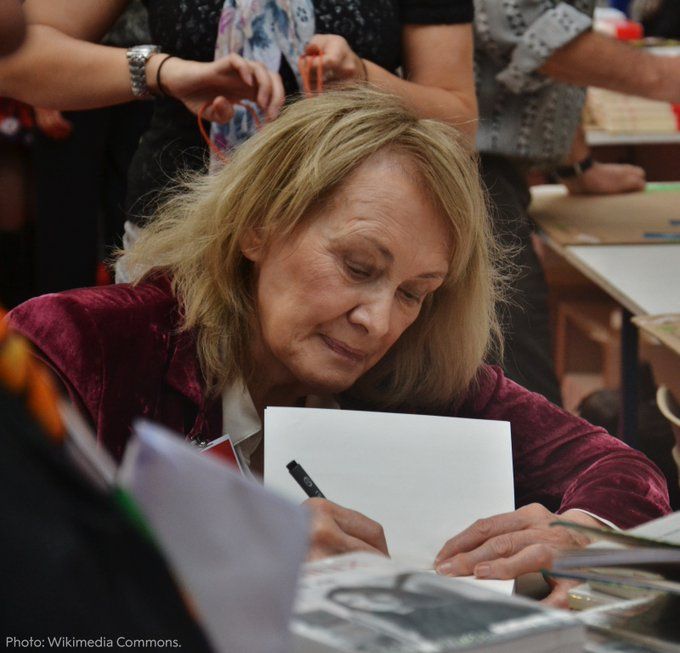Annie Ernaux, a French author, has been awarded the Nobel Prize in Literature for “the courage and clinical acuity with which she uncovers the roots, estrangements, and collective restraints of personal memory.”
Also Read| Annie Ernaux, French author, wins Nobel Prize 2022 in literature
Who is Annie Ernaux?
Originally Annie Duchesne, Annie Ernaux is a French author and professor of literature who was born on September 1, 1940. Her writing, which is primarily autobiographical, frequently references sociology. Ernaux was raised in the Normandy town of Yvetot. Although her parents ran a café-grocery store, she comes from a working-class background. She obtained a teaching credential and a higher degree in modern literature while pursuing her studies at the universities of Rouen and Bordeaux (1971).
Prior to working at the National Center for Distance Learning, she taught in Pontoise in the early 1970s, the College of Évire in Annecy-le-Vieux, the Bonneville Lycée, and several other institutions.
Also Read| Who was Alfred Nobel?
Les Armoires vides (Cleaned Out), an autobiographical novel by Annie Ernaux, marked the beginning of her writing career in 1974. She received the Renaudot Prize in 1984 for another one of her autobiographical works, La Place (A Man’s Place), an autobiographical story that highlighted her relationship with her father, her experiences growing up in a small town in France, and the process of leaving her parents’ hometown as an adult.
She shifted away from fiction very early in her career to concentrate on autobiography. Her writing blends personal and historical experiences. She describes the social development of her parents (La place, La honte), her teenage years (Ce qu’ils disent ou rien), her marriage (La femme gelée), her passionate relationship with an Eastern European man (Passion simple), her abortion (L’événement), Alzheimer’s disease (Je ne suis pas sortie de ma nuit), the passing of her mother (Une femme), and breast cancer (L’utilisation de la photo). Along with Frédéric-Yves Jeannet, Ernaux co-authored L’écriture comme un couteau (Writing as Sharp as a Knife).
A Woman’s Story was a finalist for the Los Angeles Times Book Prize, while A Man’s Place, Simple Passion, and A Woman’s Story were named The New York Times Notable Books. Shame was chosen one of Publishers Weekly’s Best Books of 1998, I Remain in Darkness was designated one of The Washington Post’s Top Memoirs of 1999, and The Possession was named one of More Magazine’s Top Ten Books of 2008.
Many people consider her 2008 historical memoir Les Années (The Years), which was favourably welcomed by French critics, to be her best work. For the first time, Ernaux writes in the third person (or “she” in English) about herself in this book, giving readers a vivid portrait of French society from the immediate aftermath of World War II until the early 2000s.
Also Read| Nobel Prize 2022: Medicine first, economics at the end; full schedule
It is a compelling account of a woman’s social development and that of the community she lived in. The Years received several awards, including the Françoise-Mauriac Prize from the Académie française in 2008, the Marguerite Duras Prize in 2009, the Télégramme Readers Prize in 2009, and the Premio Strega Europeo Prize in 2016. The Years, which was translated by Alison L. Strayer, placed third in the 31st French-American Foundation Translation Prize competition. She received the Premio Hemingway in 2018.
For her novel The Years, she received a 2019 International Booker Prize nomination. Seven Stories Press is the publisher of several of her English-language translations of her books. One of the first seven authors from whom the Press derives its name is Ernaux.







